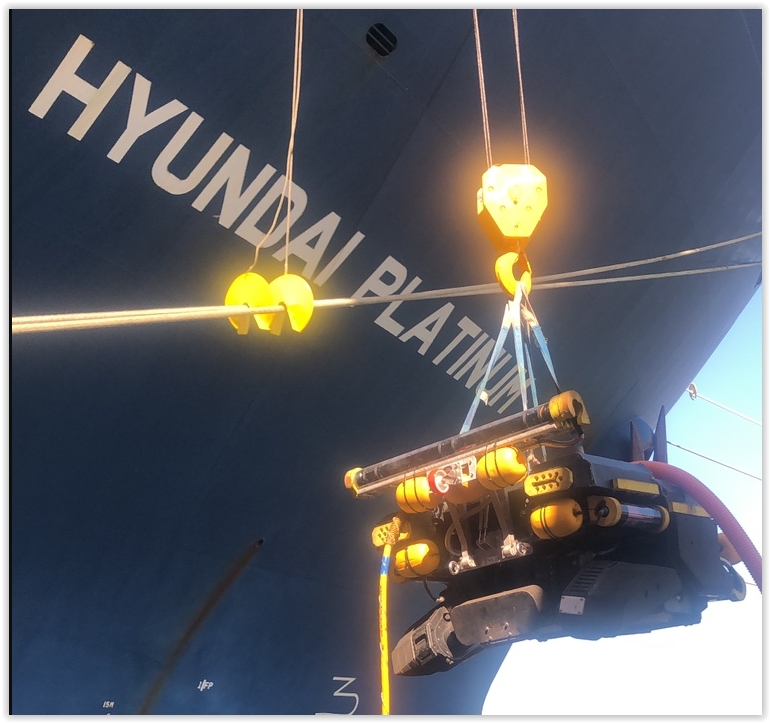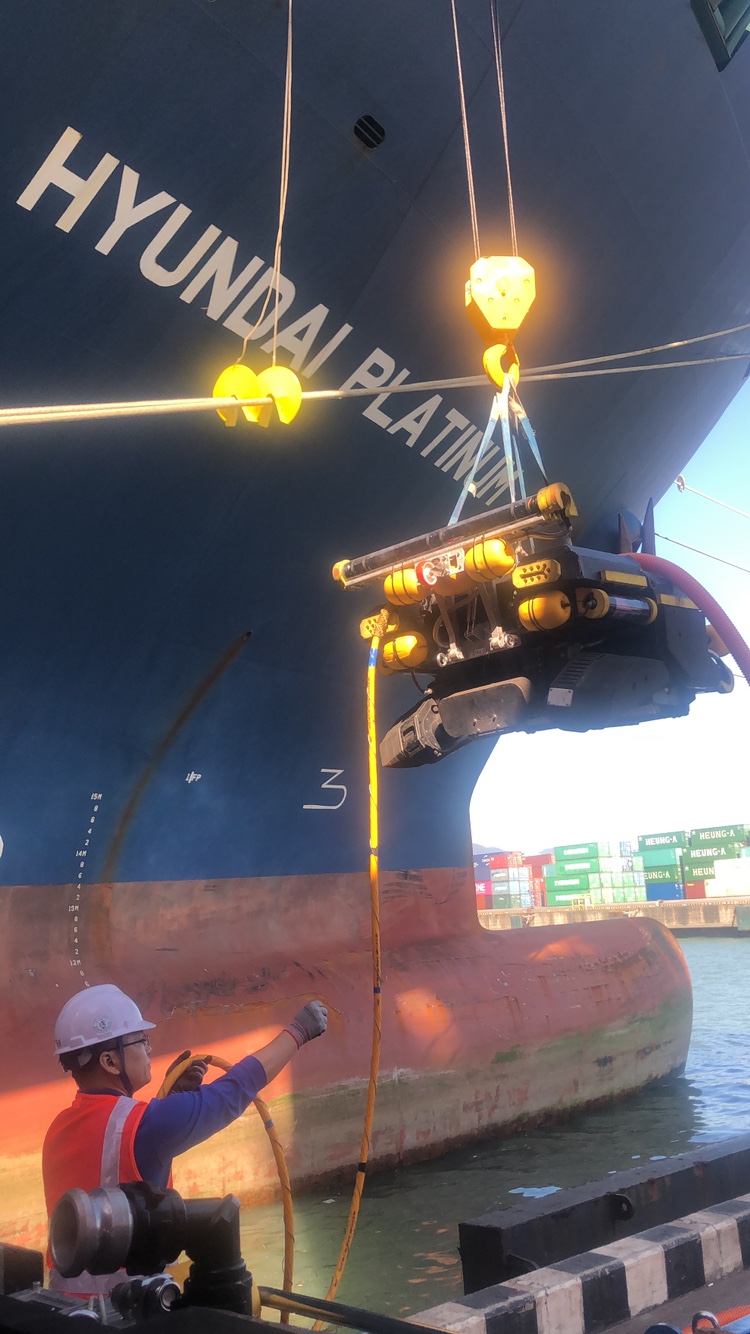Underwater robots help to prevent industrial accidents and cut environmental pollution
HMM announced that it plans to replace human labourers in a risky environment with underwater robots when it comes to hull cleaning work on its vessels.

As part of the plan to use the automated robots to clean underwater parts of hull surfaces, HMM has signed a cooperation agreement with TAS GLOBAL CO., LTD., a domestic manufacturer specialising in underwater robots.
Fouling on the hull such as barnacles, seaweed, moss, etc. is widely known to decrease the speed of vessels and increase fuel consumption by creating additional friction.
Therefore, shipping companies have made an effort to improve fuel efficiency and reduce greenhouse gases through periodic underwater hull cleaning performed by divers sent down under a vessel in many instances.
The diver-free alternative adopted by HMM is expected to not only prevent industrial accident but also contribute to protect ocean life.
Several countries are currently prohibiting in-water cleaning* of vessels in their waters due to the high risk of aquatic invasive species(AIS)** being easily transferred across the oceans as well as toxic hull paints which jeopardise the marine ecosystem.
However, underwater robots are designed to capture hull fouling and transfer it to shore refining facilities through a filtration system connected to their main body. This robotic technology enables to prevent environmental hazards caused by the transfer of aquatic invasive species.

It is also expected to lower costs by as much as 40% with substantially reduced working hours and to perform a more precise cleaning process without damage to hull coatings.
HMM will continue efforts to incorporate sustainability into every aspect of its business in terms of environmental footprint.
AIS (Aquatic Invasive Species): Aquatic organisms that invade ecosystems beyond their natural, historic range. Their presence may harm native ecosystems or commercial, agricultural, or recreational activities dependent on these ecosystems. They may even harm our health. (Source: https://www.fws.gov/fisheries/ANS/index.html)